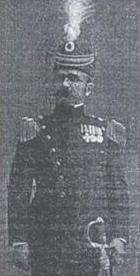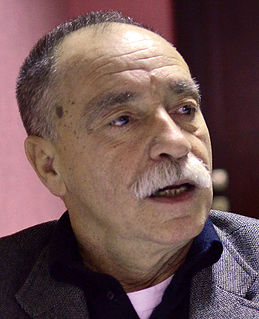
Sverdlovsk Oblast is a federal subject of Russia located in the Ural Federal District. Its administrative center is the city of Yekaterinburg, formerly known as Sverdlovsk. Its population is 4,297,747.

Montenegrins are a South Slavic ethnic group native to Montenegro.

The Christmas Uprising, also known as the Christmas Rebellion, was a failed uprising in Montenegro led by the Greens in early January 1919. The military leader of the uprising was Krsto Popović and its political leader was Jovan Plamenac.

Krsto Popović was an officer of the Montenegrin Army who fought in the Balkan Wars and in the First World War.

The Kingdom of Montenegro was a monarchy in southeastern Europe, present-day Montenegro, during the tumultuous period of time on the Balkan Peninsula leading up to and during World War I. Officially it was a constitutional monarchy, but absolutist in practice. On 28 November 1918, following the end of World War I, with the Montenegrin government still in exile, the Podgorica Assembly proclaimed unification with the Kingdom of Serbia, which itself was merged into the Kingdom of Serbs, Croats and Slovenes three days later, on 1 December 1918. This unification with Serbia would last, through various successor states, for almost 88 years, until finally coming to an end in 2006.
The Great National Assembly of the Serb People in Montenegro, commonly known as the Podgorica Assembly, was an ad hoc assembly convened in November 1918, after the end of World War I in the Kingdom of Montenegro. The assembly was held by the Montenegrin authorities with the goal of dethroning the Montenegrin Petrović-Njegoš dynasty in favour of the Serbian House of Karađorđević, in order to formalise the unification between the Serbian and Montenegrin kingdoms. It was organized by a committee appointed by the Serbian government. The two opposing sides at the assembly were the Whites who were in favour of a annexation based unification, and the Greens who were in favour of a confederation based unification. The assembly concluded the decision to merge Montenegro with Serbia, which subsequently led to the creation of the Kingdom of Yugoslavia soon after.

The Greens were a group of loyalists of King Nikola of Montenegro. They originated from the members of the True People's Party and were most notable for instigating the Christmas Rebellion of 1919. The rebellion was staged in an attempt to prevent the dethroning of the Petrović-Njegoš dynasty and the subsequent integration of Montenegro into the Kingdom of Yugoslavia. The Greens were supporters of the House of Petrović-Njegoš, which once the house was dethroned after World War I, led the Greens to fight for the establishment of Montenegro as a province within the Yugoslav kingdom. Following their defeat in the Christmas Rebellion, the Greens continued on with their guerrilla warfare until 1929. The motto of the movement was "For the Right, Honour and Freedom of Montenegro".

The True People's Party, also known as the Pravaši (Rightists), was a political party in the Principality of Montenegro and the Kingdom of Montenegro. The party represented the government, the rule of the Prince and later on the rule of King Nikola of Montenegro. The True People's Party party was led by Lazar Mijušković and notable party members included Jovan S. Plamenac, Marko Đukanović, Ivo Đurović, Sekula Drljević, Filip Jergović, Krsto Popović, Mitar Martinović and Milutin Vučinić.

Serbian–Montenegrin unionism is a political ideology which arose during Montenegro's affiliation with the Federal Republic of Yugoslavia and the State Union of Serbia and Montenegro. It advocates Montenegro being in a federal political union with Serbia and opposes Montenegrin independence and separation from Serbia. The relationship between Serbs and Montenegrins is generally identified as being the most amicable of all the peoples of the former Yugoslavia.
The Italian Risorgimento was celebrated by a series of medals set up by the three kings who ruled during the long process of unification - the Commemorative Medal for the Campaigns of the War of Independence and the various versions of the Commemorative Medal of the Unity of Italy, which were granted by the Kingdom of Italy to those who had taken part in the military operations which had led to Italian independence and later to all who participated in the First World War, since at that time it was traditionally held that Italy completed its unification with the annexation of the Trentino. Its final awards were to participants in the March on Rome and the Impresa di Fiume.
HadžiMilutin Savić Garašanin was a Serbian revolutionary, obor-knez of Jasenica, and member of the National Council under Miloš Obrenović. He is the father of Ilija Garašanin and grandfather of Milutin Garašanin (1845-1898), one of the founders and leaders of Serbian Progressive Party.
Filip Holender is a Hungarian football player who plays for Partizan on the loan from FC Lugano.

Jovan Naumović was an Armijski đeneral in the Royal Yugoslav Army who commanded the 3rd Territorial Army during the German-led Axis invasion of Yugoslavia of April 1941 during World War II. Naumović's command consisted of three infantry divisions and some smaller formations. The 3rd Territorial Army was part of the 3rd Army Group which was responsible for the border with Albania between Lake Ohrid to Lake Skadar, and the Romanian and Bulgarian borders between the Iron Gates and the Greek border.

Ljubomir Vulović, known by his nickname Ljuba (Љуба), was an artillery major in the Serbian Army, conspirator of the May Coup, and member of the Black Hand.

Ljubomir S. Jovanović, known as Ljuba Čupa, was a Serbian guerilla fighter, member of the Black Hand, soldier in the Balkan Wars, and journalist.

The People's Party, also known as the Klubaši or the Narodnjaci, was a political party in the Principality of Montenegro and the Kingdom of Montenegro. The party represented the opposition to King Nikola of Montenegro. The People's Party main political goal was the dethroning of the Petrović-Njegoš dynasty and the unification of Montenegro and Serbia. The founder of the party was Šako Petrović and notable party members included Andrija Radović, Marko Radulović and Mihailo Ivanović.

Serbs of Montenegro or Montenegrin Serbs, compose the second largest ethnic group in Montenegro, after the Montenegrins. Additional 0.64% of the population is made up of Serbs-Montenegrins and Montenegrins-Serbs. Serbs are a native population of Old Montenegro, Old Herzegovina, Brda, Raška, Bay of Kotor and Zeta.
Ljubomir "Ljubo" Vuksanović was a Montenegrin lawyer who was the chairman of the National Administrative Council established by Germany in October 1943 in the German occupied territory of Montenegro and officially appointed on 10 November 1943. Vuksanović also held the position of Minister of Internal Affairs.

Rajko Petrov Nogo is a Serbian poet, essayist and literary critic.
Ivan "Ivo" Pavićević was a Montenegrin and Serbian lawyer and politician, deputy in the National Assembly of Serbia and minister in government of Kingdom of Serbia.










